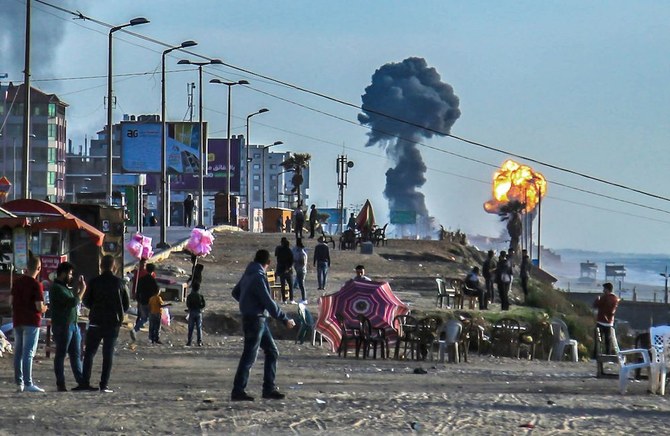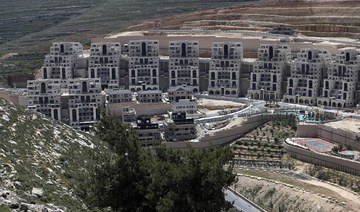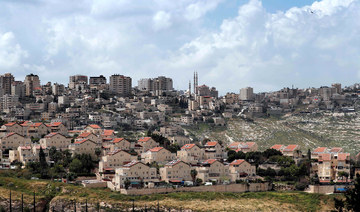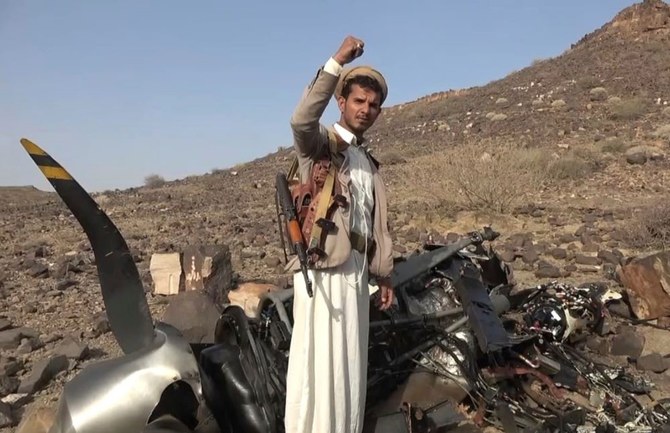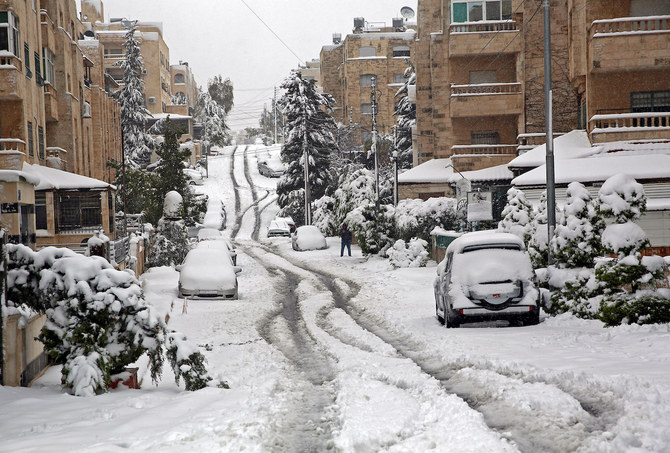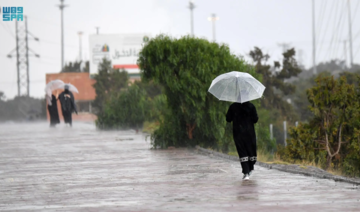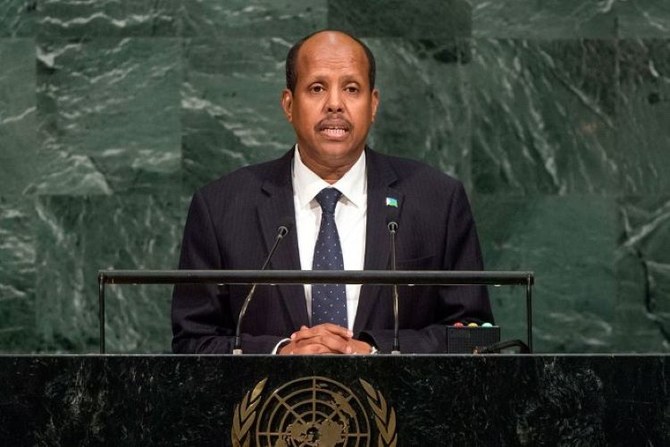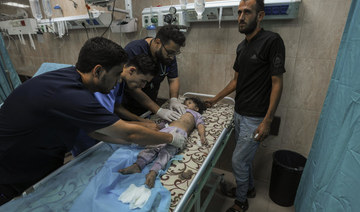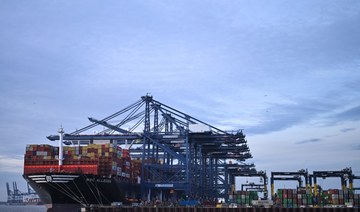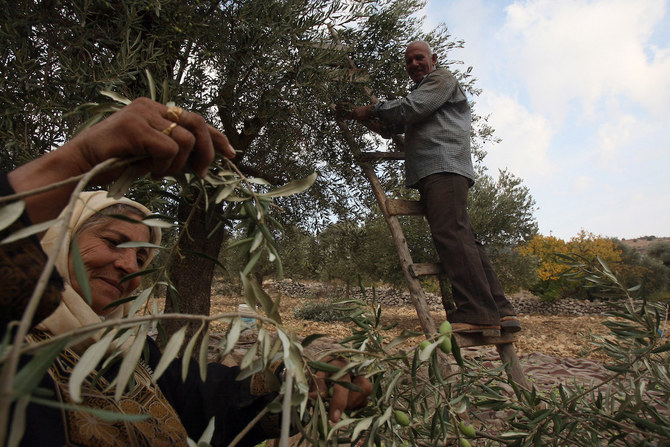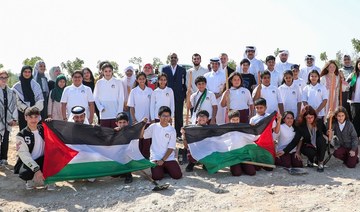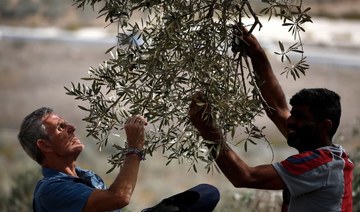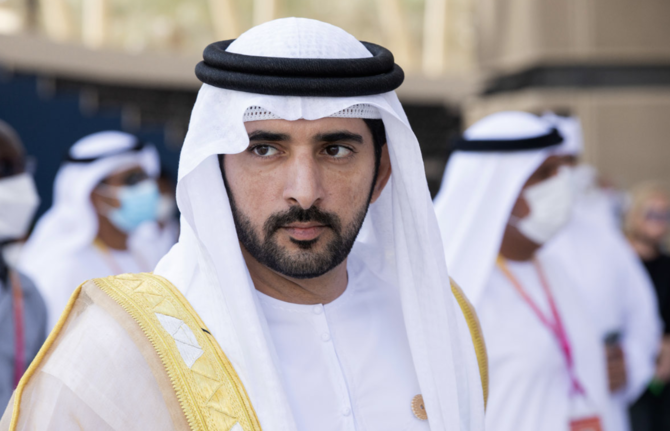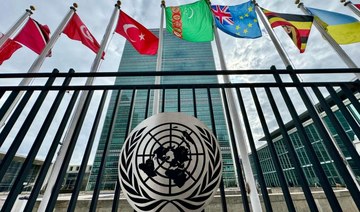JERUSALEM: Prime Minister Benjamin Netanyahu said on Sunday that he had ordered Israeli forces to press attacks against militants in the Gaza Strip and deploy in strength around the Palestinian enclave after a two-day surge in cross-border fighting.
“This morning I instructed the IDF (Israel Defense Forces) to continue with massive strikes against terrorists in the Gaza Strip and I also instructed that forces around the Gaza Strip be stepped up with tank, artillery and infantry forces,” Netanyahu, who doubles as Israeli defense minister, said in a statement.
Earlier, Israel’s army on Sunday denied claims from Gazan authorities that an Israeli strike killed a pregnant Palestinian mother and her baby, saying errant Hamas fire was to blame for the deaths.
“The terror organizations’ propaganda at its finest,” Israeli army spokesman Ronen Manelis said on Twitter.
“The mother and girl they’re claiming in Gaza that were killed in an (Israeli) attack were killed by Hamas use of weapons,” he added, without providing further details.
Another Israeli military spokesman, Jonathan Conricus, told journalists later that based on intelligence “we are now confident” that the deaths were not due to an Israeli strike.
“Their unfortunate death was not a result of (Israeli) weaponry but a Hamas rocket that was fired and exploded not where it was supposed to,” he said.
The Gazan health ministry said on Saturday that Falestine Abu Arar, 37, and her 14-month-old daughter were killed by an Israeli strike that hit their home.
A severe escalation that began Saturday has seen Palestinian militants fire some 430 rockets from Gaza, Israel's army says.
Israel has responded with waves of air and tank strikes and says it is targeting only military-related sites.
Four other Palestinians have been reported killed, including at least two militants.
One Israeli civilian was killed in a rocket strike on the city of Ashkelon near the Gaza border.
The latest flare-up came with Hamas, the hardline movement that rules the blockaded Gaza Strip, seeking further concessions from Israel under the ceasefire.
Israel said around 250 rockets were fired from Gaza and its air defenses intercepted dozens of them.
One woman was seriously injured in a rocket strike on the Israeli city of Kiryat Gat, some 20 kilometers from the Gaza border, police said.
Police said a man was also hospitalized in the city of Ashkelon and spoke of other injuries without providing details.
A house near Ashkelon was damaged, while other rockets hit open areas.The Israeli army said its tanks and planes hit some 120 militant targets in its response.
They included an Islamic Jihad attack tunnel that stretched from southern Gaza into Israeli territory, military spokesman Jonathan Conricus said.
The Gaza health ministry reported a 22-year-old man, a 25-year-old man as well as a 14-month-old baby and her pregnant mother killed, with 17 others wounded.
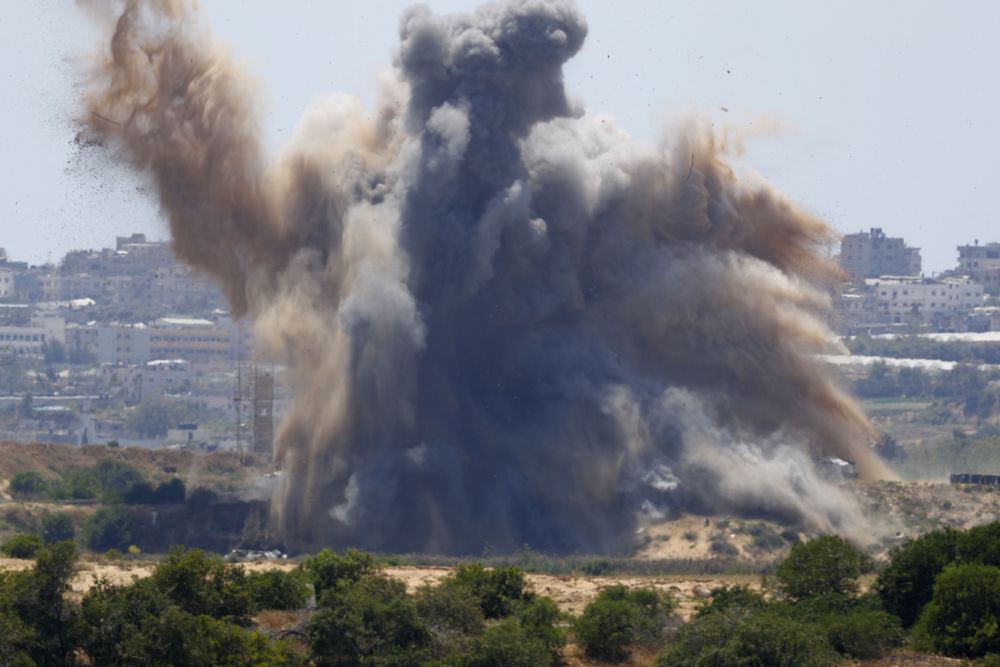
An Israeli army spokeswoman said the military did not have any information on the incident involving the baby. The army said earlier it was targeting only military sites.
As the exchange of fire continued, Israeli Prime Minister Benjamin Netanyahu held consultations with security chiefs.
A statement from Hamas ally Islamic Jihad claimed responsibility for at least some of the rocket fire and said it was prepared for more if necessary.
Its armed wing distributed a video showing militants handling rockets and threatening key Israeli sites, including Ben-Gurion international airport near Tel Aviv.
A source in the group said Egypt was engaged in discussions to calm the situation, as it has done repeatedly in the past.
The European Union called for an immediate halt to rocket fire from Gaza.
Israel said it was closing its people and goods crossings with Gaza as well as the zone it allows for fishermen off the enclave until further notice due to the rocket fire.
“Over the coming hours we will continue and we will broaden our offensive efforts, air force efforts, inside the Gaza Strip, again focusing only on military targets,” Conricus said.
The escalation follows the most violent clashes along the Gaza border in weeks on Friday.
Four Palestinians, including two Hamas militants, were killed after two Israeli soldiers were wounded in a shooting during weekly protests on the border.
Israel blamed Islamic Jihad for what it called the sniper attack, but stressed it held Hamas responsible for all violence from Gaza.
Israel and Palestinian militants in the Gaza Strip have fought three wars since 2008 and fears remain of a fourth.
A cease-fire between Israel and Hamas brokered by Egypt and the United Nations had led to relative calm around Israel’s April 9 general election.
But on Tuesday, Israel reduced the offshore fishing limit it imposes for vessels out of Gaza after a rocket was fired from the territory.
Israel’s army blamed Islamic Jihad for the rocket, which fell into the Mediterranean.
On Thursday, Israel said its aircraft struck a Hamas military compound after balloons carrying firebombs and explosives were launched across the border.
Palestinians in Gaza have frequently fitted balloons with firebombs in a bid to damage Israeli property and have in the past succeeded in setting fire to large areas of farmland.
Following that air strike, Israel said two rockets were launched from Gaza.
With the cease-fire at risk, a Hamas delegation led by its Gaza head Yahya Sinwar went to Cairo on Thursday for talks with Egyptian officials.
The cease-fire has seen Israel allow Qatar to provide millions of dollars in aid to Gaza to pay salaries and to finance fuel purchases to ease a severe electricity shortage.
Several factors may lead Israel to seek to calm the situation quickly.
Netanyahu is engaged in tough negotiations to form a new government following last month’s election, while Israel is due to host the Eurovision song contest in Tel Aviv from May 14-18.
The country also celebrates its Independence Day on Thursday.
On the Gazan side, the holy month of Ramadan begins in the week ahead.
Palestinians have participated in regular demonstrations and clashes along the Gaza border for more than a year, calling on Israel to ease its crippling blockade of the enclave.
At least 271 Palestinians have been killed by Israeli fire since the protests began in March 2018, the majority along the border.
Two Israeli soldiers have been killed in that period.
Israel accuses Hamas of using the protests as cover to carry out attacks and says its actions are necessary to defend the border and stop infiltrations.
The results of a UN investigation released at the end of February found that Israel may have committed crimes against humanity in responding to the border protests, as snipers “intentionally” shot civilians including children, journalists and the disabled.
Israel rejected the report “outright” but Hamas called for it to be held accountable.












